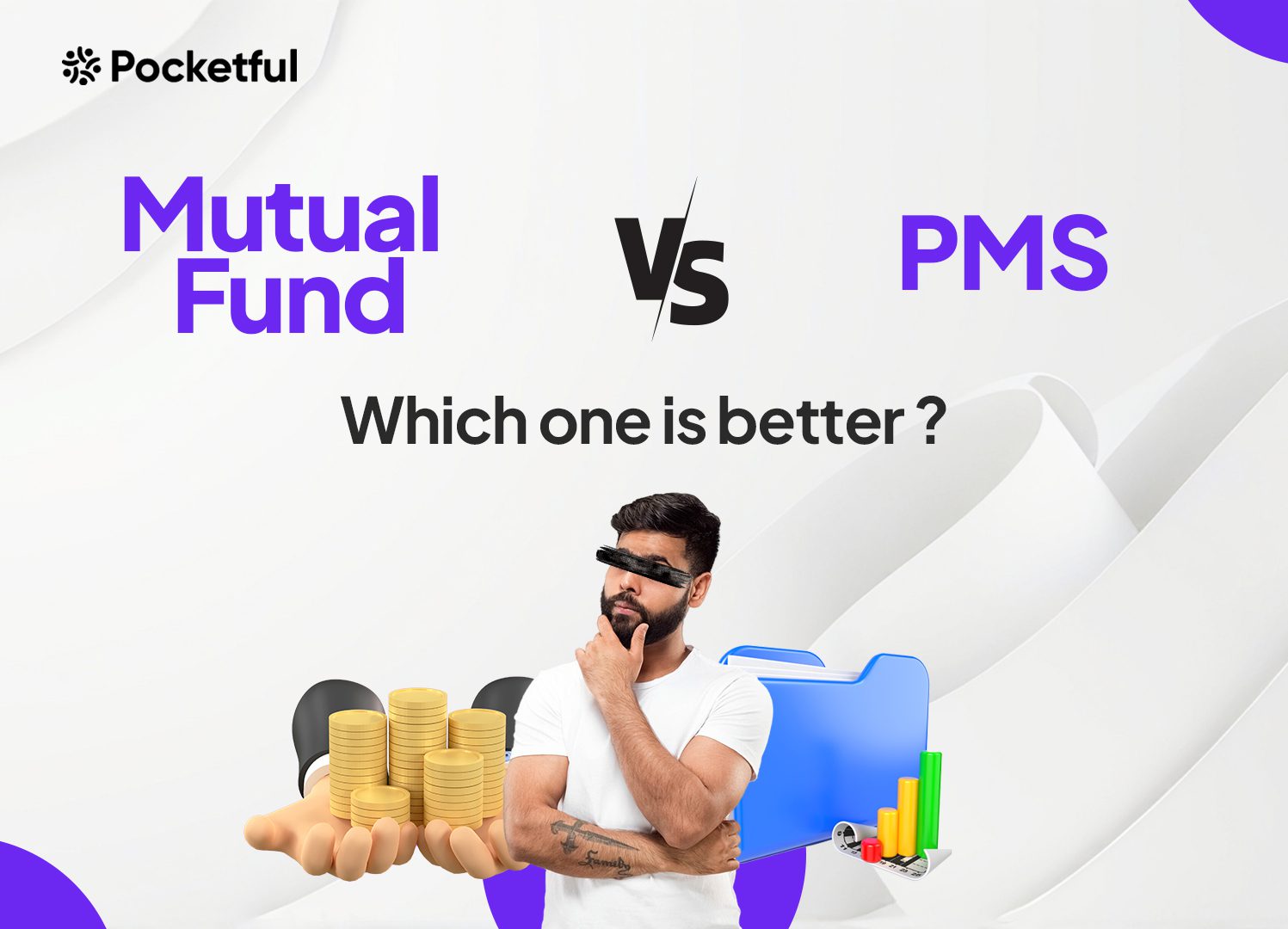| Type | Description | Contributor | Date |
|---|---|---|---|
| Post created | Pocketful Team | Aug-28-24 | |
| Add new links | Nisha | Mar-01-25 |
Read Next
- What is the 15*15*15 Rule of Mutual Fund Investing?
- Mutual Fund Factsheet: Definition And Importance
- XIRR Vs CAGR: Investment Return Metrics
- Arbitrage Mutual Funds – What are Arbitrage Funds India | Basics, Taxation & Benefits
- Hybrid Mutual Funds – Definition, Types and Taxation
- Top AMCs in India
- Active or Passive Mutual Funds: Which Is Better?
- Liquid Funds Vs Ultra Short Fund: Which One Should You Choose?
- Debt Mutual Funds: Meaning, Types and Features
- Equity Mutual Funds: Meaning, Types & Features
- What are Small Cap Mutual Funds? Definition, Advantages, and Risks Explained
- What is PSU Index? Performance, Comparison, Benefits, and Risks Explained
- Bandhan Long Duration Fund NFO: Objective, Benefits, Risks, and Suitability Explained
- Smart Beta Funds: Characteristics, Factors, Benefits, and Limitations
- The Rise of ESG Funds: Overview, Growth, Pros, Cons, and Suitability
- Mutual Funds vs Direct Investing: Differences, Pros, Cons, and Suitability
- A Comprehensive Guide on Mutual Fund Analysis: Quantitative and Qualitative Factors Explained
- NFO Alert: PGIM India Large & Mid Cap Fund
- ELSS Funds: 3 Years Lock-In Worth It?
- Regular vs Direct Mutual Funds: Make The Right Investment Decision
- Blog
- mutual funds
- mutual fund vs pms
Mutual Fund vs PMS: Which is Better?

After putting in a lot of effort, you may have some capital left after paying for all your expenditures. However, one must be cautious when it comes to investing your assets. Nowadays, mutual funds and portfolio management services (PMS) are the most popular investment options available to investors, but do you know how to choose the right one for you?
In this blog, we provide information about mutual funds and PMS and the approach an investor must take to choose between them.
Overview of Mutual Fund

A mutual fund is a type of financial vehicle that pools the capital of several investors with similar investment goals or objectives. The pooled capital is invested in various asset classes, including equities, bonds, commodities, etc., by the fund managers, who are professionals in this field. After deducting expenses and fees, the investor gets the return on their investment. An asset management company, or AMC, is the organization in charge of this procedure.
In India, mutual funds can be categorized based on asset classes, financial goals and structure. There are four types of mutual funds in India based on asset class-
- Equity Mutual Fund – Due to its vulnerability to fluctuations in the market, this specific mutual fund type is riskier than others because it typically invests in stocks or equities.
- Debt Mutual Fund – Investors who invest in these funds are risk-averse because they invest in fixed-income securities such as government bonds, corporate bonds, and other fixed-income securities.
- Hybrid Fund – This fund invests in both debt and equity. The portfolio of hybrid funds will have some allocation to debt to deliver stable and predictable returns, along with some equity allocation to achieve capital appreciation.
- Money Market Fund – This type of mutual fund invests in low-risk money market instruments, such as treasury bills and commercial paper, with maturities less than a year.
Overview of Portfolio Management Services
Financial institutions offer portfolio management services or PMS. Investors may purchase this product, and a group of experienced fund managers will use their expertise to determine which asset classes to invest in.
Individuals typically set aside a percentage of their capital for investments, but if they don’t have the investing knowledge, they may not be able to invest it properly. Such investors can invest in portfolio management services (PMS) companies. Investment professionals manage the portfolio according to the client’s risk profile, investment objectives, and preferences. In exchange for these services, investment managers charge fees.
Types of portfolio management services are:
- Discretionary PMS– Under this category of portfolio management services, the portfolio managers make all investment-related decisions on behalf of the client. Fund managers are not required to consult with investors before making investment decisions. Most customers select this kind of service.
- Non-discretionary PMS– In this type of service, the fund manager needs the client’s approval before investing. The investment team of PMS provides financial advice to the client, who ultimately chooses whether or not to take it.
Difference Between Mutual Funds and PMS
| Particular | Mutual Fund | PMS |
|---|---|---|
| Minimum Investment Amount | In mutual funds, the minimum investment amount starts from INR 100. | As per SEBI, a minimum investment amount of INR 50 Lakhs is required for PMS. |
| Customisation | A mutual fund does not allow investors to customize their portfolios. | PMS allows investors to customize portfolios according to their preferences. |
| Ownership of Assets | Investors don’t directly own underlying assets. | The investor has direct ownership of underlying securities. |
| Charges | Mutual funds have nominal fees compared to PMS, which generally have higher fees. | PMS has higher fees than mutual funds. |
| Risk | Mutual funds are suitable for investors with low-risk profiles. | It is typically ideal for high-risk investors. |
| Transparency | In mutual funds, investors can only track the performance of funds. | Investors of mutual funds can track and view every trade made in their accounts. |
Factors to Consider Before Investing in Mutual Funds and PMS

The various factors to be considered before investing in mutual funds and PMS are as follows-
- Risk Profile – The investor’s risk tolerance will determine whether they choose a mutual fund or PMS as their investment option. If investors are ready to take high risks, they should choose PMS.
- Capital – If an investor has a substantial amount of money to invest, they may choose to opt for portfolio management services (PMS). Investors with a small capital to invest can choose mutual funds.
- Expense Ratio – Mutual funds investments have a relatively lower expense ratio than PMS.
- Return Potential – PMS generally offer higher potential returns than mutual funds. Hence, investors seeking better returns may invest in PMS instead of mutual funds.
- Liquidity – Generally, PMS have longer lock-in periods than mutual funds.
Read Also: Types of Mutual Funds in India
Conclusion
In conclusion, there are advantages and disadvantages to investing in PMS and mutual funds. If investors want personalized investment services and have a sizable amount of money to invest, they should choose PMS. Investors should consider mutual funds if they have a lower initial investment amount. Investors should consult a financial advisor before investing.
| S.NO. | Check Out These Interesting Posts You Might Enjoy! |
|---|---|
| 1 | SIP in Stocks vs SIP in Mutual funds? |
| 2 | XIRR Vs CAGR: Investment Return Metrics |
| 3 | Liquid Funds Vs Ultra Short Fund |
| 4 | Active or Passive Mutual Funds: Which Is Better? |
| 5 | ICICI Vs HDFC Bank: Which Has Larger Market Capitalization? |
Frequently Asked Questions (FAQs)
What is the minimum investment amount required to open a PMS account?
The SEBI guideline states that a minimum investment of INR 50 lakhs is required to open a PMS account.
Which is better: PMS or Mutual Fund?
Mutual funds are suitable for individuals with a low-risk tolerance and a small amount to invest, while PMS is suitable for investors with a high-risk tolerance who have at least INR 50 lakh to invest.
Does PMS have exit loads?
Indeed, exit loads for certain portfolio management service companies typically range from 1% to 3%.
How are the profits from PMS taxed?
Profits earned by the PMS are subject to capital gains tax, and the tax rate varies according to the asset’s holding period.
Can an NRI invest in PMS in India?
NRIs can invest in PMS in India if they follow FEMA regulations and other compliance requirements.
Disclaimer
The securities, funds, and strategies discussed in this blog are provided for informational purposes only. They do not represent endorsements or recommendations. Investors should conduct their own research and seek professional advice before making any investment decisions.
Article History
Table of Contents
Toggle